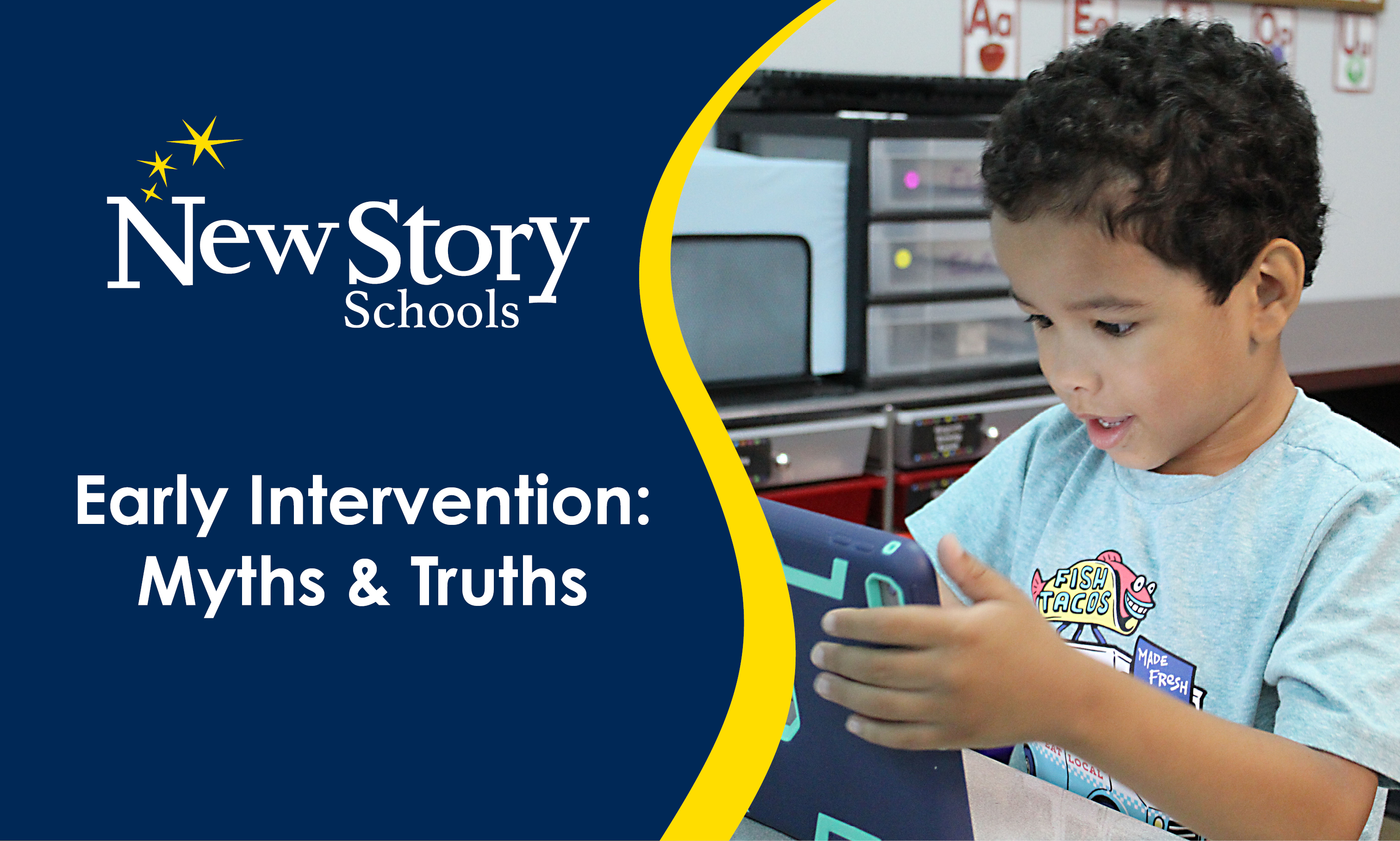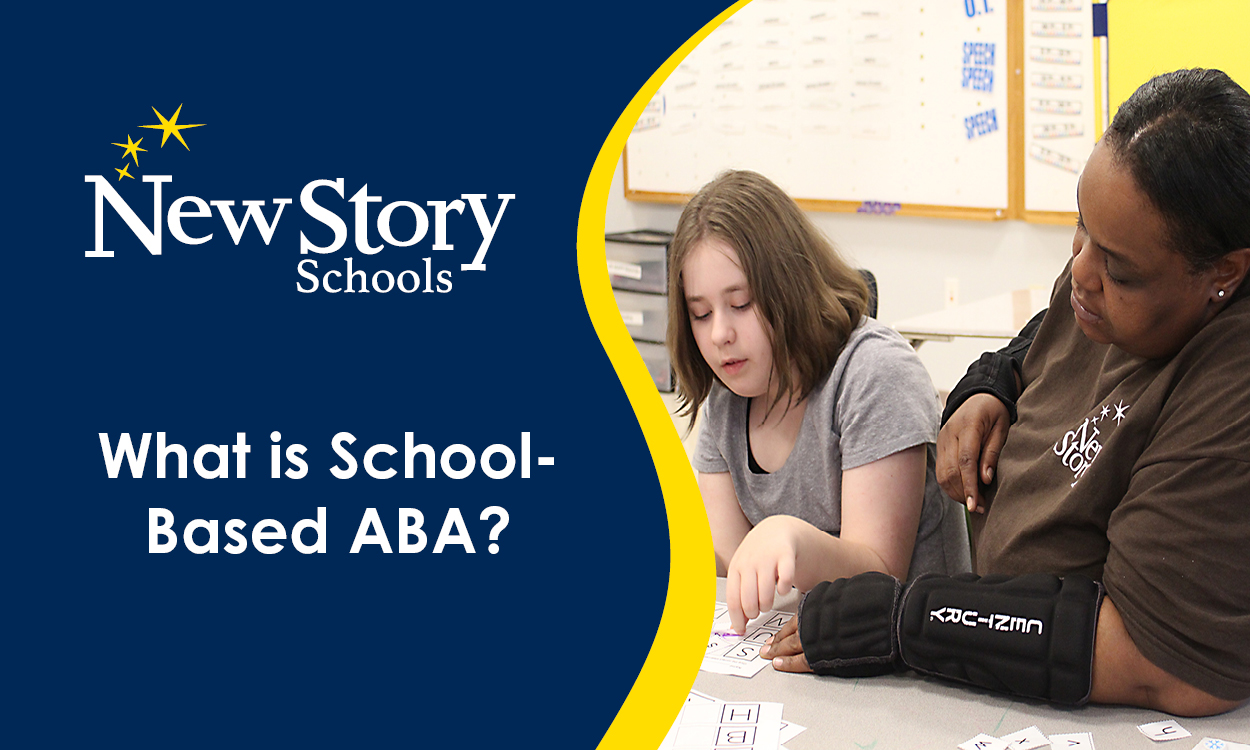Early Intervention: Myths & Truths
Posted: April 25, 2024 | Written By: Drew Delligatti | Category: Autism Support

This blog was written by Hannah Foley, Administrative Assistant at New Story Schools in Carlisle, PA.
About Early Intervention
Early Intervention (EI) is a vital resource for families whose children (ages 0-3) may struggle with things like a physical or mental disability. For children with autism spectrum disorder (autism), it is even more vital as it can help families who are new to the autism community and may not feel as if they have many resources to utilize. There are so many kinds of support included with early intervention that most families do not know are available. Some of their services include communication development, adaptive development, and social/emotional development. These services can prove crucial in a child’s life, especially young children, as the Eunice Kennedy Shriver National Institute states that “research shows that early diagnosis of and interventions for autism are more likely to have major long-term positive effects on symptoms and later skills.”
Breaking Down Myths About Early Intervention
Families may be reluctant to reach out to receive early intervention services for several reasons. In this section, we break down some myths about what EI is and who it is for.
Myth: Families believe that early intervention programs are only for children with intellectual disabilities
Fact: EI can be used for infant and toddler development in the areas of physical development, cognitive development, communication development, social/emotional development, or adaptive development.
Myth: Services are Expensive
Fact: Through the Individuals with Disabilities Education Act (IDEA), for those that qualify, services are provided at no cost. Each state and territory have their own EI program. You can find your state’s EI program here.
Myth: Families are not involved during the services
Fact: A core component of EI services is family training and learning. Family training and counseling is provided by social workers, psychologists, and other qualified personnel to assist the family of an infant or toddler with a disability in understanding the special needs of the child and enhancing the child’s development.
A Personal Look into Utilizing Early Intervention
As a young mom with a young child who just recently received an autism diagnosis, I was unsure what my next steps would be. Being recently new to Pennsylvania and working at New Story Schools, I was lucky enough to know a few things prior to my son receiving his diagnosis. However, it is one thing to work with children with autism, it is another when your family goes through an autism diagnosis. After receiving my son’s diagnosis and reaching out to Early Intervention, we were able to set up occupational therapy services for him right away. Not only has his occupational therapy helped him, but it has also helped me and my husband tremendously with tools and resources that we did not know about. While our son is still young, the therapy that he is receiving now will benefit him as he grows older and begins to interact with his peers and others in society. As my son will be three at the end of this year, he will no longer qualify for Early Intervention. However, they have made sure that we are well prepared for his transition to pre-K and will be with us through every step of that transition.
I always encourage families to reach out to Early Intervention programs and see what kind of resources are available to them, because they never know until they ask, especially if they are in the same boat as I was and new to the autism community.
Want to be notified of new articles and resources from New Story Schools? Submit your email and opt into our newsletter!









